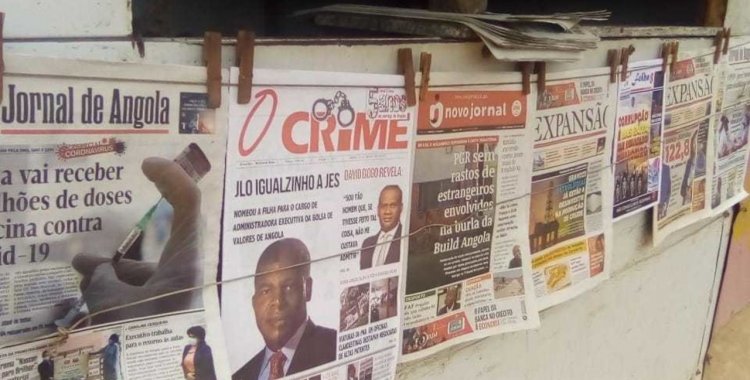Miguel de Carvalho "Wadijimbi", president of the Union of Angolan Journalists (UJA) and one of the lecturers, considered that freedom of the press "aims at consolidating the democratic processes" because a democracy without freedom of the press "cannot survive".
Wadijimbi recalled that the right to freely express and share thoughts and to inform and be informed has constitutional backing, recognizing, however, that "today the state monopoly in the media is a fact, increasing state influence."
"The solution would be a call for the entry of new private actors in the media and thus increase the diversification of media, auguring better guarantees of press freedom," he suggested, at the conference "Press Freedom in Angola: Current Situation and Prospects," promoted Friday in Luanda by the Institute for Media in Southern Africa (MISA) Angola.
António Paulo, a member of parliament from the ruling MPLA party, also a speaker at the meeting, considered that freedom of the press "is a fundamental right" that must be seen in the "historical and political context of Angola."
"We also see a need to strengthen institutions, we see a need to create a culture of citizenship and civic participation, this is a deficit we have (...)," argued the MP from the Popular Movement for the Liberation of Angola (MPLA).
According to the lawyer, citizens must reach "civic maturity to realize the importance of fundamental rights, which are tools for protecting the human person.
"Only after we overcome what I call the weaknesses of the context, only after we reach the so-called civic maturity, then we will be able to talk about freedom of the press," he noted.
Father José Paulo regretted the "retreat" that is verified at the level of press freedom in the country and the absence of contradiction in many media, considering that Angolans are "afraid of criticism".
But criticism, referred the Catholic priest, "educates, makes us grow, even in the academy criticism makes us grow and we have a terrible fear of criticism.
"We must defend nation building and everyone, or each one in his or her profession, must work for this," he concluded.







